Plenary Keynote Sessions
Monday, May 11 | 4:15 – 5:55 PM
CARs 2026: New Models and New Runways
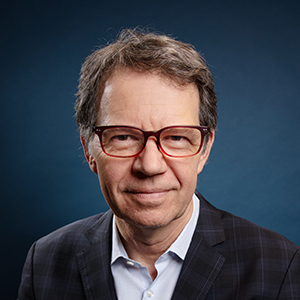 Michel Sadelain, MD, PhD, Director, Columbia University Initiative in Cell Engineering and Therapy (CICET); Director, Cell Therapy Initiative, Herbert Irving Comprehensive Cancer Center; Professor of Medicine, Columbia University Irving Medical Center
Michel Sadelain, MD, PhD, Director, Columbia University Initiative in Cell Engineering and Therapy (CICET); Director, Cell Therapy Initiative, Herbert Irving Comprehensive Cancer Center; Professor of Medicine, Columbia University Irving Medical Center
Young Scientist Keynote:
Deep Learning-Based Binder Design to Probe Biology
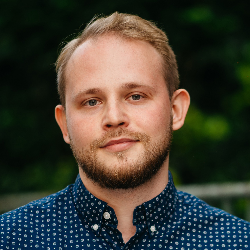 Martin Pacesa, PhD, Assistant Professor, Pharmacology, University of Zurich
Martin Pacesa, PhD, Assistant Professor, Pharmacology, University of Zurich
Wednesday, May 13 | 8:25 – 9:15 AM
PEGS Young Scientist Keynote Alumni Panel: Innovation in Protein Science with Young Scientist Visionaries
Moderator:
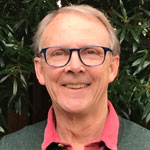 James A. Wells, PhD, Professor, Departments of Pharmaceutical Chemistry and Cellular & Molecular Pharmacology, University of California, San Francisco
James A. Wells, PhD, Professor, Departments of Pharmaceutical Chemistry and Cellular & Molecular Pharmacology, University of California, San Francisco
Panelists:
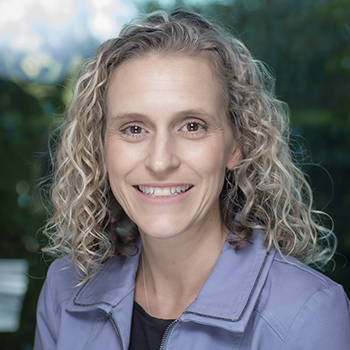 Kathryn Hastie, PhD, Instructor, La Jolla Institute for Immunology
Kathryn Hastie, PhD, Instructor, La Jolla Institute for Immunology
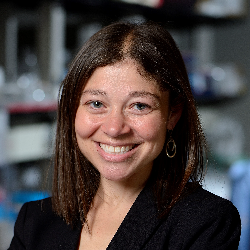 Jamie Spangler, PhD, Associate Professor, Johns Hopkins University
Jamie Spangler, PhD, Associate Professor, Johns Hopkins University
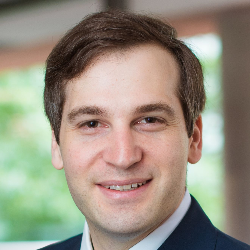 Kipp Weiskopf, MD, PhD, Head of Antibody Therapeutics and Biologics, Cancer Research Institute, Beth Israel Deaconess Medical Center
Kipp Weiskopf, MD, PhD, Head of Antibody Therapeutics and Biologics, Cancer Research Institute, Beth Israel Deaconess Medical Center
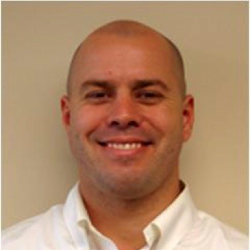 Timothy Whitehead, PhD, Professor, University of Colorado
Timothy Whitehead, PhD, Professor, University of Colorado
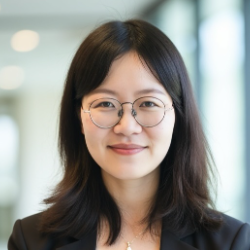 Xin Zhou, PhD, Assistant Professor, Harvard Medical School
Xin Zhou, PhD, Assistant Professor, Harvard Medical School
Thursday, May 14 | 11:35 AM – 12:35 PM
PLENARY FIRESIDE CHAT: How to Think About Designing Smart Biologics in The Age of GenAI: Integrating Biology, Technology, and Experience
Moderator:
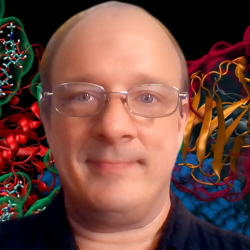 Christopher J. Langmead, PhD, Executive Director, AI & Data for Engineered Biologics, Amgen
Christopher J. Langmead, PhD, Executive Director, AI & Data for Engineered Biologics, Amgen
Panelists:
 Surge Biswas, PhD, Founder & CEO, Nabla Bio, Inc.
Surge Biswas, PhD, Founder & CEO, Nabla Bio, Inc.
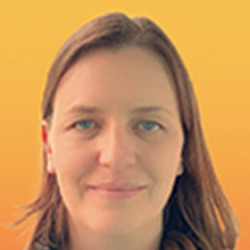 Rebecca Croasdale-Wood, PhD, Senior Director, Augmented Biologics Discovery & Design, Biologics Engineering, Oncology, AstraZeneca
Rebecca Croasdale-Wood, PhD, Senior Director, Augmented Biologics Discovery & Design, Biologics Engineering, Oncology, AstraZeneca
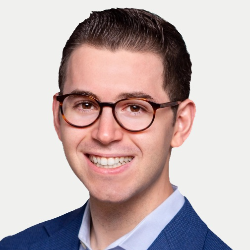 Joshua Meier, PhD, Co-Founder, Chai Discovery
Joshua Meier, PhD, Co-Founder, Chai Discovery
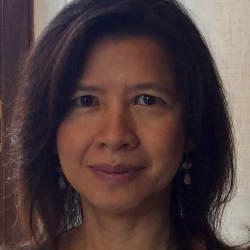 Maria Wendt, PhD, Global Head (Vice President) of Digital and Biologics Strategy and Innovation, Large Molecule Research, Novel Modalities, Synthetic Biology and AI, Sanofi
Maria Wendt, PhD, Global Head (Vice President) of Digital and Biologics Strategy and Innovation, Large Molecule Research, Novel Modalities, Synthetic Biology and AI, Sanofi
Michel Sadelain, MD, PhD, Director, Columbia University Initiative in Cell Engineering and Therapy (CICET); Director, Cell Therapy Initiative, Herbert Irving Comprehensive Cancer Center; Professor of Medicine, Columbia University Irving Medical Center
Michel Sadelain, MD, PhD, is the Director of the Center for Cell Engineering and the incumbent of the Stephen and Barbara Friedman Chair at Memorial Sloan Kettering Cancer Center. Dr. Sadelain’s research focuses on human cell engineering and cell therapy to treat cancer and hereditary blood disorders. His laboratory has made several seminal contributions to the field of chimeric antigen receptors (CARs), from design to clinical translation. His group was the first to publish dramatic molecular remissions in patients with chemorefractory acute lymphoblastic leukemia following treatment with CD19 CAR T cells.
Martin Pacesa, PhD, Assistant Professor, Pharmacology, University of Zurich
My interest lies in using computational and experimental methods to interrogate the interactions between proteins and nucleic acids, and how we can accurately extract the dynamics of such interactions. I did my PhD in structural biology (cryoEM and crystallography) with Prof. Martin Jinek studying the mechanism of CRISPR-Cas9 gene editor activation and off-target tolerance. I then did my postdoctoral research in the lab of Prof. Bruno Correia, developing computational methods for the solubilisation of membrane proteins and the design of highly specific protein binders.
James A. Wells, PhD, Professor, Departments of Pharmaceutical Chemistry and Cellular & Molecular Pharmacology, University of California, San Francisco
Wells’s group pioneered the engineering of proteins, antibodies, and small molecules that target catalytic, allosteric, and protein-protein interaction sites; technologies including protein phage display, alanine-scanning, engineered proteases for improved hydrolysis, bioconjugations, N-terminomics, disulfide “tethering” (a novel site-directed fragment-based approach for drug discovery); and more recently an industrialized recombinant antibody production pipeline for the proteome. These led to important new insights into protease mechanisms, growth factor signaling, hot-spots in protein-protein interfaces, role of caspases in biology, and more recently to determining how cell surfaces change in health and disease. His team was integral to several protein products, including Somavert for acromegaly, Avastin for cancer, Lifitegrast for dry eye disease, and engineered proteases sold by Pfizer, Genentech, Shire and Genencor, respectively. He is an elected member of the US National Academy of Science, American Association of Arts and Science, and the National Academy of Inventors.
Kathryn Hastie, PhD, Instructor, La Jolla Institute for Immunology
Dr. Hastie uses high-resolution structural analysis to design better therapeutics and vaccines against viruses that threaten global health. She is a leading expert on the hemorrhagic fever virus Lassa virus and serves on international task forces to steer thought about how to better elicit and detect the right responses to Lassa virus and to deliver a much-needed vaccine to endemic areas. Most recently, Dr. Hastie has worked with the Coronavirus Immunotherapeutic Consortium (CoVIC) to compare leading therapeutics against SARS-CoV-2 and illuminate surfaces on the Spike protein that are less likely to escape antibody-mediated neutralization. Dr. Hastie further spearheads antibody discovery efforts at La Jolla Institute for Immunology to find antibodies against emerging viruses and other therapeutic targets.
Jamie Spangler, PhD, Associate Professor, Johns Hopkins University
Dr. Jamie Spangler earned a Bachelor of Science degree in Biomedical Engineering at Johns Hopkins University and went on to complete a PhD in Biological Engineering at MIT under the supervision of Professor K. Dane Wittrup. She conducted postdoctoral training in Professor K. Christopher Garcia’s lab at Stanford University School of Medicine, and then launched her independent research group at Johns Hopkins University in July 2017, jointly between the departments of Biomedical Engineering and Chemical & Biomolecular Engineering. Dr. Spangler’s lab, located in the Translational Tissue Engineering Center at the School of Medicine, applies structural and mechanistic insights to re-engineer existing proteins and design new proteins that therapeutically modulate the immune response. In particular, her group is interested in engineering immune molecules such as antibodies, cytokines, and growth factors for targeted treatment of diseases such as cancer, infectious diseases, and autoimmune disorders. Dr. Spangler’s work has been recognized with honors including a National Defense Science and Engineering Graduate Fellowship, a Leukemia & Lymphoma Society Career Development Fellowship, a V Foundation Scholar award, and a Maryland Stem Cell Research Fund Discovery award.
Kipp Weiskopf, MD, PhD, Resident Physician, Brigham and Women’s Hospital
Kipp Weiskopf, M.D., PhD, is a Valhalla Fellow at Whitehead Institute for Biomedical Research in Cambridge, MA. He is a leader in the field of macrophage-directed therapies and oversees a research laboratory that studies novel macrophage and myeloid immune checkpoints for the treatment of cancer. Dr. Weiskopf is concurrently appointed as a Hematology and Oncology fellow at Dana-Farber Cancer Institute in Boston, MA. Dr. Weiskopf earned his medical and graduate degrees at Stanford University. As a member of Dr. Irving Weissman’s laboratory, he characterized the CD47/SIRPa interaction as an immune checkpoint that regulates macrophages in cancer. He engineered therapies that stimulate macrophages to attack tumors and showed these could be effective for many types of cancer. Dr. Weiskopf is an inventor on over 15 U.S. patents pertaining to macrophage-directed therapies. He co-founded ALX Oncology, a biotech company that is investigating macrophage-directed therapies in multiple Phase I and II trials for cancer. Other technology that Dr. Weiskopf invented has been licensed to Forty Seven, Inc. (acquired by Gilead). More recently, he co-founded DEM Biopharma to identify novel “don’t eat me” signals that can be targeted for cancer and other life-threatening diseases. Dr. Weiskopf completed his medical training in the Internal Medicine Residency Program at Brigham and Women’s Hospital and is board certified in Internal Medicine. He has previously been awarded a Winston Churchill Scholarship, an NCI Ruth L. Kirschstein NRSA Fellowship, the Harold M. Weintraub Graduate Student Award, and first place in the Collegiate Inventors Competition. Dr. Weiskopf previously earned a B.A. from Amherst College and an M.Phil. in genetics from University of Cambridge.
Timothy Whitehead, PhD, Professor, University of Colorado
Tim Whitehead is an Associate Professor at the University of Colorado, Boulder in the Dept. of Chemical and Biological Engineering. He has won an NSF CAREER award, holds 6 patents (5 licensed), and has published over 50 research articles in journals like Science, Nature Biotechnology, and Nature Methods.
Xin Zhou, PhD, Assistant Professor, Harvard Medical School
Xin Zhou is an Assistant Professor of Biological Chemistry & Molecular Pharmacology, Harvard Medical School, and Cancer Biology, Dana-Farber Cancer Institute. She obtained her PhD in Bioengineering with Dr. Michael Lin from Stanford University and did her postdoctoral training with Dr. Jim Wells at UCSF. Dr. Zhou’s research focuses on engineering functional protein sensors and switches for modulating biology. In the past, she has built proteins with versatile functions, including light-activated enzymes, phosphotyrosine recognition domains, antibody antagonists and agonists, and biosensors to measure SARS-CoV-2 antibodies. Her work was recognized by many awards including an NIH Pathway to Independence Award and a Damon Runyon-Dale F. Frey Award for Breakthrough Scientists. Dr. Zhou’s new research group aims to leverage the power of protein engineering to gain a deeper fundamental understanding of malignancies and to discover new avenues for therapeutic intervention.
Christopher J. Langmead, PhD, Executive Director, AI & Data for Engineered Biologics, Amgen
Christopher James Langmead is the Director of Digital Biologics Discovery at Amgen. His team at Amgen develops and uses AI/ML methods to design and optimize of biologics. He earned his PhD in computer science from Dartmouth and then spent the next 18 years as faculty in computer science and computational biology at Carnegie Mellon University where his group developed a variety of generative models relevant to protein design, including GREMLIN. Dr. Langmead joined Amgen at the beginning of 2022.
Surge Biswas, PhD, Founder & CEO, Nabla Bio, Inc.
Surge is a co-founder and the CEO at Nabla Bio, an antibody design company. Surge received his PhD from George Church’s lab. There, he and his colleagues pioneered the development of protein language modeling, a technology that has been central to state-of-the-art protein structure prediction and machine learning-guided protein design. Outside of Nabla, Surge enjoys hanging out with his wife and Nabla co-founder, Frances, and their two dogs, Archie and Riley.
Rebecca Croasdale-Wood, PhD, Senior Director, Augmented Biologics Discovery & Design, Biologics
Engineering, Oncology, AstraZeneca
Rebecca is an innovative leader responsible for the implementation of novel and disruptive in silico technologies to increase the speed of discovery and quality of biologics therapeutics. She is an experienced antibody engineer with structural biology expertise and was co-inventor of the CrossMab technology that is now leading the way in approvals for multi-specific antibody therapeutics. She has authored 30+ patents and publications in the field of antibody engineering.
Joshua Meier, PhD, Co-Founder, Chai Discovery
Joshua Meier is the former Chief AI Officer at Absci, where he spearheaded the company's transformation into AI Drug Discovery and built robust departments of AI scientists and engineers. Under Joshua’s leadership, Absci pioneered groundbreaking generative AI models for the creation of novel protein therapeutics, closed deals with leading biopharmaceutical companies and published work on antibody design, antibody optimization, and codon optimization. Prior to Absci, Joshua was a senior researcher at Facebook AI Research, where he co-founded and led the platform for protein language modeling. At Facebook, Joshua was principal developer of the ESM-1b and ESM-1v models, which are widely utilized across the biopharmaceutical industry. In his earlier roles, Joshua developed language models & reinforcement learning at OpenAI, managed a virtual reality product at Google, and built MIT's CRISPR-ML design platform. Joshua completed his undergraduate and graduate work in computer science & chemistry at Harvard.
Maria Wendt, PhD, Global Head (Vice President) of Digital and Biologics Strategy and Innovation, Large Molecule Research, Novel Modalities, Synthetic Biology and AI, Sanofi
Biography to be announced